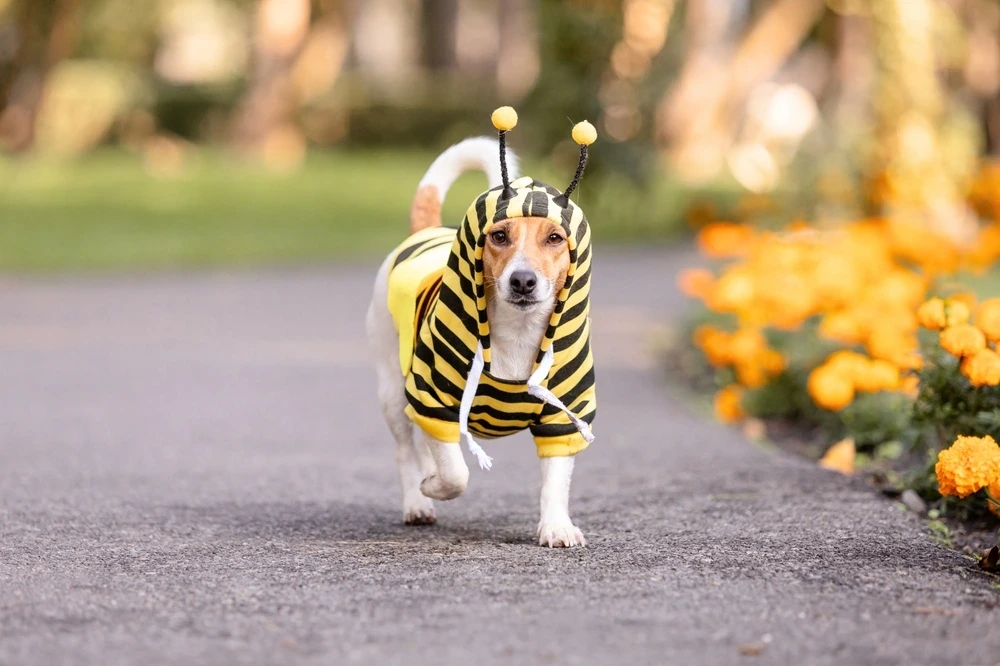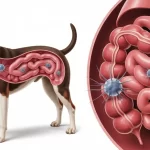Honey is a natural sweetener known for its antimicrobial and antioxidant properties. As pet owners increasingly explore natural remedies and healthier treat alternatives for their furry companions, a common question arises: Can Dogs Eat Honey?
Let’s dive into the facts and uncover whether this golden nectar is safe and beneficial for dogs, how often it can be given, and the best kind of honey to offer your pet.

Content
Can Dogs Eat Honey Raw?
Yes, Can Dogs Eat Honey Raw is a valid concern for pet parents leaning toward organic and unprocessed foods. Raw honey, in its natural state, can be safe for dogs in small amounts. Unlike processed honey, raw honey retains enzymes, antioxidants, and nutrients that may offer several health benefits. However, it’s crucial to ensure that your dog doesn’t have a compromised immune system, as raw honey may contain botulism spores which are more dangerous to puppies and senior dogs.
If you’re introducing raw honey for the first time, start with a tiny amount and monitor your dog for any signs of allergies or digestive upset.
Benefits Of Honey For Dogs
The Benefits Of Honey For Dogs can be impressive when it’s offered responsibly. Here are some ways honey may help your furry friend:
- Natural energy boost: Its natural sugars can provide a quick energy source, especially for active or working dogs.
- Soothes sore throats: Honey’s anti-inflammatory properties can help dogs with kennel cough or minor throat irritation.
- Allergy relief: Some pet owners use local honey to help build immunity against seasonal pollen.
- Skin health: Applied topically, honey can aid in healing minor cuts, burns, or dry patches on a dog’s skin.
Despite these potential advantages, remember that honey is still sugar-heavy, and overconsumption can lead to weight gain or contribute to dental problems.
Can Dogs Eat Honey Everyday?
This brings us to the next concern: Can Dogs Eat Honey Everyday? The short answer is no. While honey can offer health benefits, it should be treated as a supplement, not a staple in your dog’s diet.
Dogs don’t need sugar in their daily meals. Giving honey too frequently can disrupt blood sugar levels, especially in diabetic or overweight dogs. It’s best to reserve honey for occasional use or during specific times—like when you’re addressing a cough or using it as a reward.
Stick to a limit of no more than half a teaspoon per day for small dogs and one teaspoon for larger breeds.
How Much Honey To Give Dog For Allergies?

A popular natural remedy among dog owners is using honey to ease seasonal allergies. But How Much Honey To Give Dog For Allergies is an important detail to get right.
Veterinarians often recommend starting with small doses—about 1/4 teaspoon for small dogs and 1 teaspoon for large dogs, once per day. The idea is to use local, raw honey containing trace amounts of local pollen. Over time, the theory goes, this could help build tolerance and reduce allergy symptoms like sneezing or itching.
That said, results can vary from dog to dog, and honey should not replace prescribed allergy medications unless advised by your vet.
Best Honey For Dogs
Choosing the Best Honey For Dogs can make all the difference. Not all honey is created equal—some commercial brands are heavily processed and stripped of beneficial nutrients.
Look for the following when selecting honey for your dog:
- Raw and unfiltered: These retain the highest amount of nutrients and enzymes.
- Locally sourced: Ideal for addressing seasonal allergies due to pollen exposure.
- Organic: Free from harmful pesticides or additives.
Avoid honey that contains additives, artificial sweeteners, or is overly processed. Manuka honey is sometimes used for therapeutic purposes, especially for topical application, but always confirm its suitability with your vet.
Conclusion
So, Can Dogs Eat Honey? Yes—moderately and responsibly. While honey can provide a natural energy boost and may help with allergies or sore throats, it should never replace a balanced diet or proper medical care.
Always consult your veterinarian before adding new foods to your dog’s diet, especially if your pup has pre-existing conditions like diabetes or obesity. When used wisely, honey can be a sweet and beneficial treat for your four-legged friend. If you’re also a cat owner, you might be curious to learn What Is Cat Grass and how it benefits your feline friends.

Join Felipe Clark on a heartwarming journey through the world of pet adoption. He’s a true advocate for shelter animals, sharing stories that tug at the heartstrings and inspire adoption.















